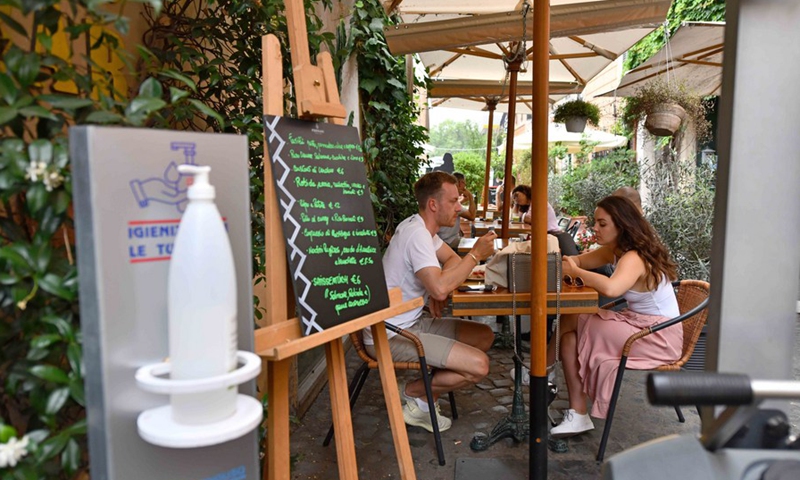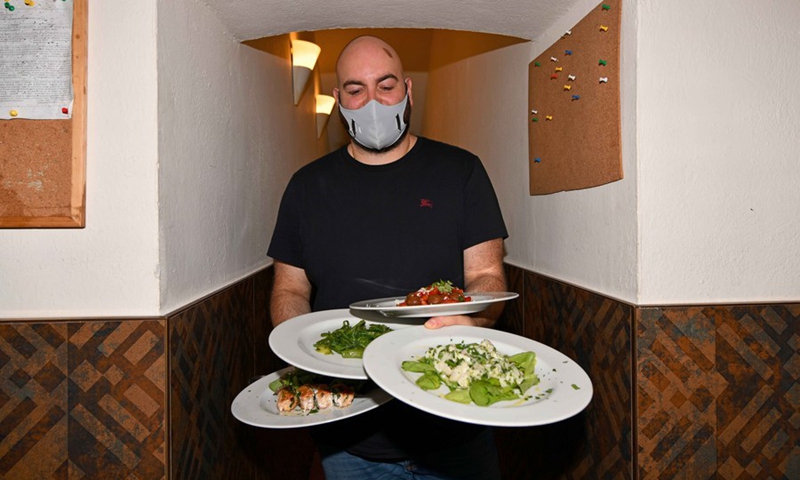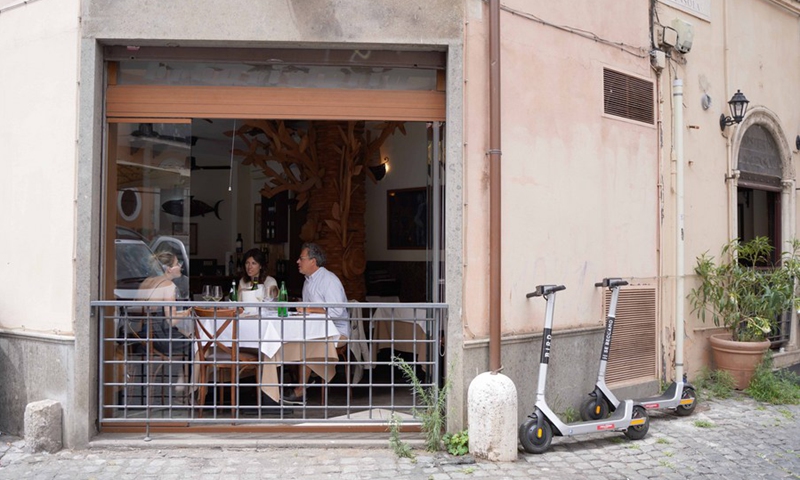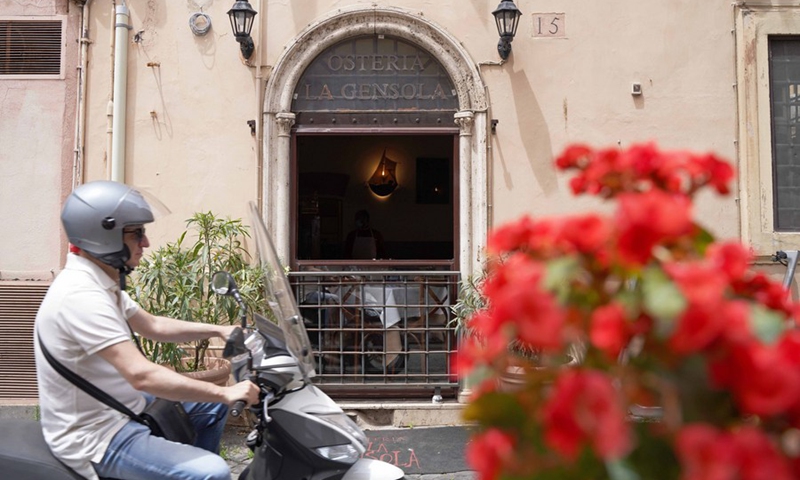
People dine at a restaurant in Rome's Trastevere neighborhood, Italy, on June 24, 2021.(Photo: Xinhua)

Simone Dordei, co-owner of Osteria La Gensola restaurant, serves dishes to customers in Rome, Italy, on June 24, 2021. (Photo: Xinhua)

People dine at Osteria La Gensola restaurant in Rome, Italy, on June 24, 2021.(Photo: Xinhua)

A motorcyclist passes by Osteria La Gensola restaurant in Rome, Italy, on June 24, 2021.(Photo: Xinhua)
As coronavirus health restrictions have been dramatically eased in recent months and tourists are starting to come back to the country, Italy's massive restaurant sector is slowly returning to normal.
Streets that were mostly empty during the worst of the pandemic are again crowded. But restauranteurs say they are not yet ready to stop worrying.
"Yes, things are looking better than they were but I still have a hard time sleeping at night," Simone Dordei, co-owner of Osteria La Gensola in Rome's bohemian Trastevere neighborhood, told Xinhua. "If there's one thing the last year and a half has taught us, it is that everything can go bad without much warning."
Dordei recalled the early days of the pandemic. La Gensola closed for the first two weeks of last year for refurbishment, he said, but despite re-opening only in mid-January, sales for the month were still better than the full month of January a year earlier. By the third week of February, sales had surpassed those for all of February 2019.
Then, in early March, the pandemic struck and the restaurant closed its doors for three months under quarantine rules. The rest of the year was marked by a series of partial re-openings followed by new restrictions. For the year as a whole, Dordei said, La Gensola earned 80 percent less than normal.
"Up until the pandemic arrived, I thought 2020 was going to be a record-setting year," he said. "Who knows what's going to happen next? Is one of the new coronavirus variants going to force Italy to issue another lockdown? Is there some problem around the corner that we don't see coming?"
So far, coronavirus indicators show a positive trend over recent months. According to the country's Ministry of Health, the national daily count of infections is now regularly under 1,000, compared to daily numbers of more than 10,000 as recently as April and 20,000 as recently as March. As of Saturday, the number of active cases in the country is at its lowest point since October 2020.
Still, Dordei's cautious attitude is understandable. According to the FIPE, an industry group representing the catering and entertainment sectors, around one in five businesses in Rome, including restaurants and bars, have still not opened fully, despite the improving indicators.
According to Coldiretti, Italy's main agricultural and food entity, the pandemic's economic impact on the broad restaurant sector last year was 41 billion euros (49 billion U.S. dollars), with big losses continuing into 2021.
The restaurant sector's challenges have had an impact on diners as well. Data from the polling firm Opinioni shows the average Italian is having a meal away from home 1.2 times per week, compared to 2.9 times before the pandemic. Maria Rossi, the firm's co-director, told Xinhua the main culprits behind the lower numbers were income levels and pandemic-related health fears.
That is echoed by Antonia Cocci, an office worker eating a salad at Terra Satis in Trastevere Thursday. "I don't eat out as often as I did before, which means that each time I do it feels more like a special treat," Cocci told Xinhua.
Cesare Lubrano, a municipal government staffer who was dining at a restaurant in Trastevere, predicted the pandemic will have a lasting impact on the psychology of diners.
"When I had to cook for myself during the pandemic, I told myself I would never take a meal out for granted and so far I haven't," he told Xinhua.
Angelo Orrico, a waiter at La Gensola, told Xinhua he had a similar attitude when it came to his job.
"I'm very happy to be back at work," said Orrico, who volunteered with the Red Cross when the restaurant was closed last year. "I think and I hope the worst is behind us. But I still don't want to relax too much. We have to be ready for whatever the future holds."
